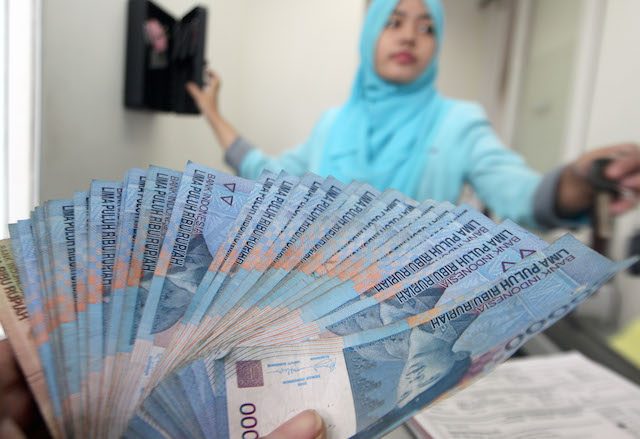SUMMARY
This is AI generated summarization, which may have errors. For context, always refer to the full article.


HONG KONG, China – Australian energy giant Santos surged more than 20% at one point Thursday, October 22 after rejecting a multi-billion-dollar takeover bid it described as “opportunistic,” giving a lift to other Sydney-listed energy firms.
And while jitters over China’s economics malaise kept equities on edge, increasing confidence that the Federal Reserve will delay an interest rate rise until the new year continued to lend broad support to emerging-market currencies.
Santos, Australia’s 3rd biggest oil and gas firm, flatly rejected the Aus$7.1 billion ($5.1 billion) bid from merchant bank and investment syndicate Scepter Partners, saying it was not interested.
Scepter, which manages money for Asian and Gulf-based royals, offered Aus$6.88 cash for each Santos share, a 26% premium on Wednesday’s closing price.
But in a statement Santos said: “The proposal is considered to be opportunistic in nature and does not reflect the fair underlying asset value of the company.”
News of the rejection sent shares in the firm soaring 20.6% to Aus$6.56 after opening in Sydney, before easing slightly to end 16.18% higher at Aus$6.32.
While Santos has stakes in oil and gas production in several countries, including Indonesia and Vietnam, its main assets include a 13.5 percent of Exxon Mobil’s US$19 billion liquefied natural gas venture in Papua New Guinea and the US$18.5 billion Gladstone LNG project in Australia.
The Australian firm has come under increasing pressure in the past year as the price of oil has plunged and its chief executive said he would step down, leading it to announce a review of operations.
Despite Thursday’s gains, the stock is still down by about half compared to last October.
“Santos is clearly ripe for the picking,” said Evan Lucas, a market strategist at IG Ltd in Melbourne.
“I don’t think the board will see any price sub-Aus$10 as fair value considering Gladstone is now up and running,” he added, referring to a new liquefied natural gas venture in Australia.
The rally in Santos was reflected in other Sydney-listed energy stocks, with Origin up 5.71%, Beach Energy gaining 3.91% and Woodside clocking a 0.81% increase.
The gains helped Sydney’s S&P 200 index edge up 0.30% by the end.
‘More volatilty’
However, Tokyo shed 0.63% as accusations of fraud against Canadian pharmaceutical giant Valeant Pharmaceuticals International dented Japanese drugmakers, while investors booked profits on the back of a two-day rally.
Hong Kong ended down 0.63% after returning from a public holiday, while Seoul closed down almost 1%.
Shanghai had rallied 1.45% by the close, bouncing back from a more than 3% retreat Wednesday as investors continue to bet on fresh monetary easing measures by Beijing. Hopes for more stimulus have helped the market pile on around 12% so far this month.
“I feel investors are treading cautiously after yesterday’s decline, as they are looking to see if there will be government support,” said Bernard Aw, a Singapore-based strategist at IG Asia.
Attention is also turning to next week’s Communist Party meeting that will help set economic policy.
Global markets suffered their worst quarter in four years in July-September with equities and currencies seeing wild fluctuations, exacerbated by China’s shock devaluation of the yuan in August.
While they have enjoyed a positive past three weeks as dealers bet on the Fed delaying a rate rise, Monday’s third-quarter data showing China’s economy grew at its slowest pace since the global financial crisis rattled confidence.
“I’m finding it hard to get bullish, especially after the run-up we’ve had,” said Mark Lister, head of private wealth research at Craigs Investment Partners in Wellington.
“I see more risks than opportunities. I’m pretty cautious on China and the emerging world and there’s more to come there in terms of pain and volatility.”
On currency markets, the dollar retreated against most emerging currencies.
Indonesia’s rupiah gained 0.73% and the Malaysian ringgit was up 0.07%, while the Thai baht added 0.18% and the Singapore dollar put on 0.21%. The Australian dollar was 0.10% higher.
However, nervousness kept a lid on South Korea’s won, which eased 0.51%. – Rappler.com
Add a comment
How does this make you feel?
There are no comments yet. Add your comment to start the conversation.